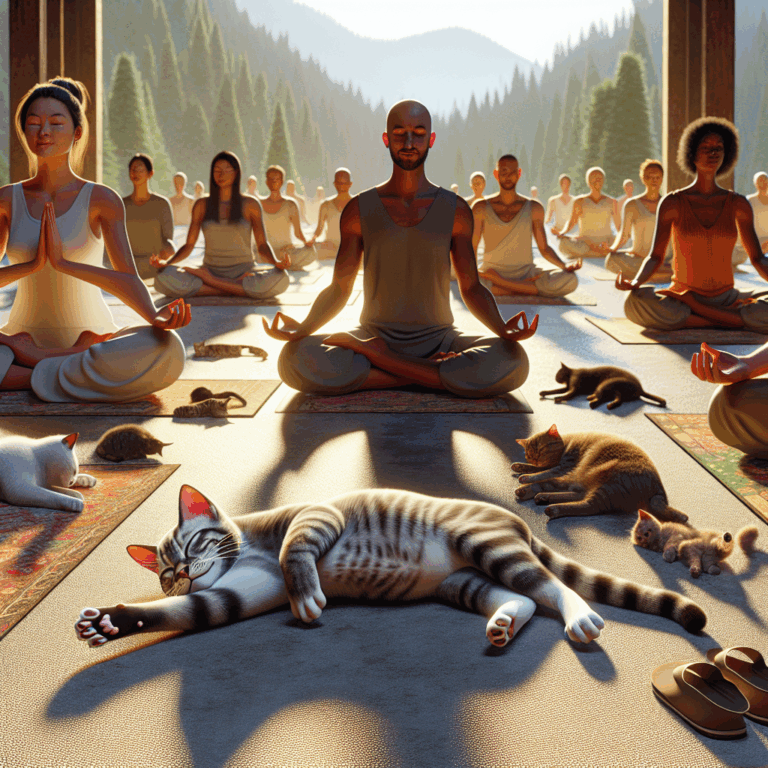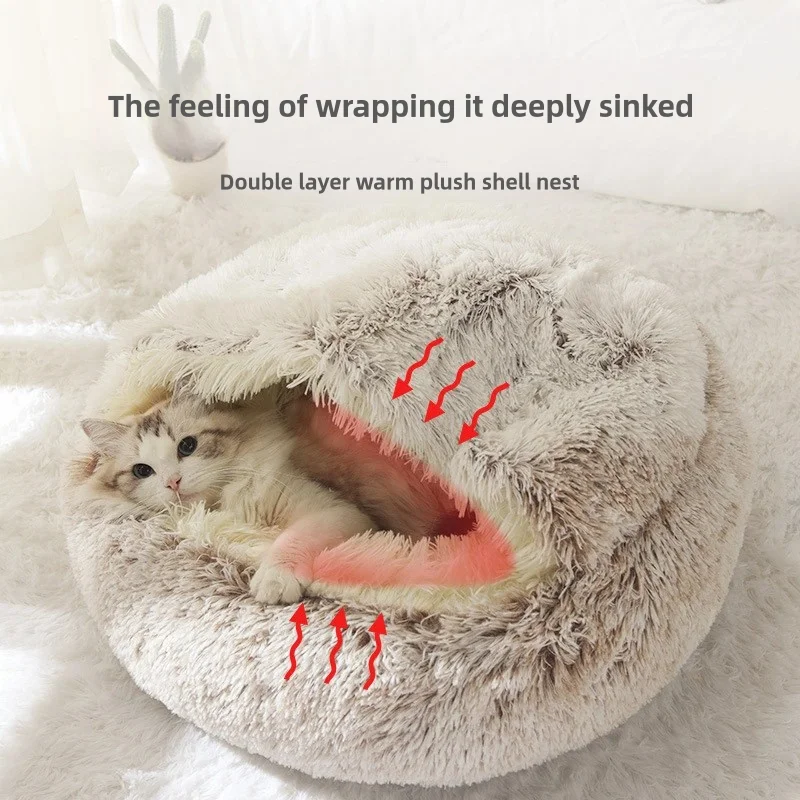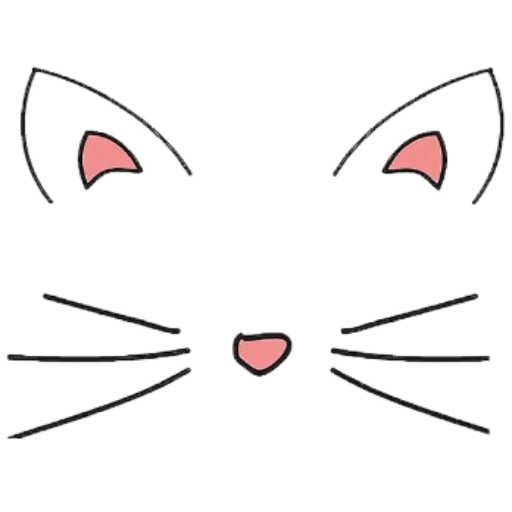The Feline Innovators of Wellness: Cats and Their Role in Holistic Health Practices
- One Comment
In a world increasingly focused on wellness and holistic health, a surprising player has emerged: the domesticated cat. Long revered for their companionship and mysterious charm, cats are now being recognized for their subtle yet significant role in human well-being. As the wellness industry continues to expand, with global trends emphasizing mental health, relaxation, and holistic approaches to health, cats are finding their niche as valuable contributors to these movements.
Cats have always been known to possess an innate ability to provide comfort, often curling up beside their owners during times of stress or illness. This natural inclination toward nurturing behaviors is now being studied in greater depth by experts in animal-assisted therapy. The rhythmic sound of a cat’s purr, for instance, is not only soothing but has also been shown to have therapeutic effects. Studies suggest that the frequency of a cat’s purr can promote healing in humans, potentially lowering stress levels and even aiding in the recovery of bones and muscles.
The presence of a cat in the home can create an atmosphere of calmness and relaxation, which is essential in combating the pressures of modern life. Many holistic health practitioners are incorporating feline companionship into their practices, encouraging clients to spend time with cats to help alleviate anxiety and depression. This approach aligns with the principles of mindfulness, encouraging individuals to live in the moment and find joy in the simple presence of a purring companion.
Moreover, the relationship between humans and cats offers a unique opportunity to examine the effects of nonverbal communication on mental health. Cats are highly perceptive creatures that respond to their owner’s emotional states, often providing silent support when words fail. This nonverbal interaction can be particularly beneficial for individuals dealing with trauma or those who find verbal expression challenging, offering a silent but profound form of companionship and empathy.
Cats are also being integrated into wellness retreats and holistic health centers, where they serve as unofficial therapists for visitors seeking tranquility and balance. The mere act of petting a cat can lower blood pressure and release endorphins, enhancing the overall wellness experience. Some retreats have even developed specific programs where participants engage in yoga or meditation sessions with cats, combining physical relaxation with the emotional comfort these animals provide.
The influence of cats on wellness extends beyond the individual to the community level. Animal shelters and rescue organizations have noted a growing trend in adopting cats for mental health purposes, recognizing the mutual benefits for both the animal and the owner. This symbiotic relationship not only enhances personal well-being but also contributes to the broader goal of animal welfare.
As research in this area continues to evolve, the role of cats in holistic health practices is expected to gain further recognition. The wellness industry, with its focus on integrating mind, body, and spirit, finds an ideal partner in the feline species. While cats may not hold formal qualifications in therapy or medicine, their impact on human health is undeniable, offering a unique blend of companionship, comfort, and healing that fits perfectly within the holistic health paradigm. In the journey toward wellness, it seems that cats are much more than just pets—they are vital partners in the pursuit of a balanced and fulfilling life.

In a world increasingly focused on wellness and holistic health, a surprising player has emerged: the domesticated cat. Long revered for their companionship and mysterious charm, cats are now being recognized for their subtle yet significant role in human well-being. As the wellness industry continues to expand, with global trends emphasizing mental health, relaxation, and holistic approaches to health, cats are finding their niche as valuable contributors to these movements.
Cats have always been known to possess an innate ability to provide comfort, often curling up beside their owners during times of stress or illness. This natural inclination toward nurturing behaviors is now being studied in greater depth by experts in animal-assisted therapy. The rhythmic sound of a cat’s purr, for instance, is not only soothing but has also been shown to have therapeutic effects. Studies suggest that the frequency of a cat’s purr can promote healing in humans, potentially lowering stress levels and even aiding in the recovery of bones and muscles.
The presence of a cat in the home can create an atmosphere of calmness and relaxation, which is essential in combating the pressures of modern life. Many holistic health practitioners are incorporating feline companionship into their practices, encouraging clients to spend time with cats to help alleviate anxiety and depression. This approach aligns with the principles of mindfulness, encouraging individuals to live in the moment and find joy in the simple presence of a purring companion.
Moreover, the relationship between humans and cats offers a unique opportunity to examine the effects of nonverbal communication on mental health. Cats are highly perceptive creatures that respond to their owner’s emotional states, often providing silent support when words fail. This nonverbal interaction can be particularly beneficial for individuals dealing with trauma or those who find verbal expression challenging, offering a silent but profound form of companionship and empathy.
Cats are also being integrated into wellness retreats and holistic health centers, where they serve as unofficial therapists for visitors seeking tranquility and balance. The mere act of petting a cat can lower blood pressure and release endorphins, enhancing the overall wellness experience. Some retreats have even developed specific programs where participants engage in yoga or meditation sessions with cats, combining physical relaxation with the emotional comfort these animals provide.
The influence of cats on wellness extends beyond the individual to the community level. Animal shelters and rescue organizations have noted a growing trend in adopting cats for mental health purposes, recognizing the mutual benefits for both the animal and the owner. This symbiotic relationship not only enhances personal well-being but also contributes to the broader goal of animal welfare.
As research in this area continues to evolve, the role of cats in holistic health practices is expected to gain further recognition. The wellness industry, with its focus on integrating mind, body, and spirit, finds an ideal partner in the feline species. While cats may not hold formal qualifications in therapy or medicine, their impact on human health is undeniable, offering a unique blend of companionship, comfort, and healing that fits perfectly within the holistic health paradigm. In the journey toward wellness, it seems that cats are much more than just pets—they are vital partners in the pursuit of a balanced and fulfilling life.



1 thought on “The Feline Innovators of Wellness: Cats and Their Role in Holistic Health Practices”
This post beautifully highlights how cats contribute to human well-being through their natural abilities and calming presence.